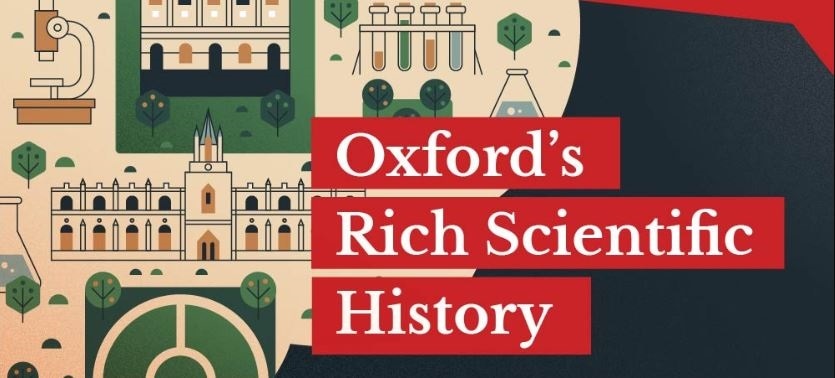
The Marketing Science Roadshow heads to Oxford this month to educate sales & marketing professionals on the ever-changing complex digital landscape. To mark the occasion, we celebrate one of the UK's proudest institutions with the below infographic.
The University of Oxford has been teaching since 1096. In that time, there has been a wealth of influential discoveries and figures in both science and engineering, shaping the world as we know it today. Learn more about the remarkable figures in the city of Oxford’s rich scientific history.
View The full infographic
1327 - Richard of Wallingford
Spent 15 years studying at the University of Oxford, and created one the world’s most complex astronomical clock mechanisms, an equatorium capable of predicting eclipses. He also invented the rectangulus, an instrument for spherical trigonometry and to measure the angles between planets and other astronomical bodies.
1540 - Leonard Digges
Is credited with inventing the theodolite, used extensively in land surveying and construction. Although his attribution to this invention is disputed, he is recorded as having invented a rudimentary telescope that was very advanced for the time.
1622 - Robert Boyle
Is considered one of the founders of modern chemistry. Boyle disagreed with beliefs that air was one of the four elements, and later formed Boyle’s Law, which describes the relationship between increasing gas pressure and decreasing container volume.
1663 - Christopher Wren
Sees his first chapel design for Pembroke College’s chapel in Cambridge realised.
1665 - Robert Hooke
Publishes Micrographia, the first book to show detailed illustrations of creatures and plants as seen through microscopes. Hooke is responsible for numerous influential discoveries and advancements in biology, chemistry, architecture, astronomy, and map making.
1877 - William Froude
Invents the water brake dynamometer. He had significantly influenced ship design with his work on laws concerning the efficiency and stability of ship hulls.
1907 - The University of Oxford
Approves the Oxford Professorship in Engineering Science.
1945 - Howard Florey, Sir Alexander Fleming and Sir Ernst Boris Chain
Shared the Nobel Prize in Physiology or Medicine for their work in developing penicillin.
1964 - Dorothy Hodgkin
Won the Nobel Prize in Chemistry. Until 2016, she was the only British woman to have won a Nobel Prize in any of the recognized sciences.
1989 - Tim Berners-Lee
Invents the World Wide Web.
2001 - Stephen Hawking
Publishes The Universe in a Nutshell, which charts the history of modern physics and is considered a sequel to his 1988 bestselling book A Brief History of Time.
2015 - Stephen Hawking
Announces new project with Yuri Milner called Breakthrough Listen, a program searching for evidence of intelligent extraterrestrial life.
What's Next?